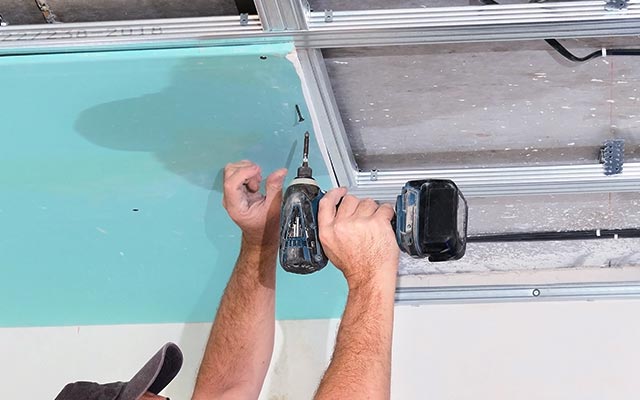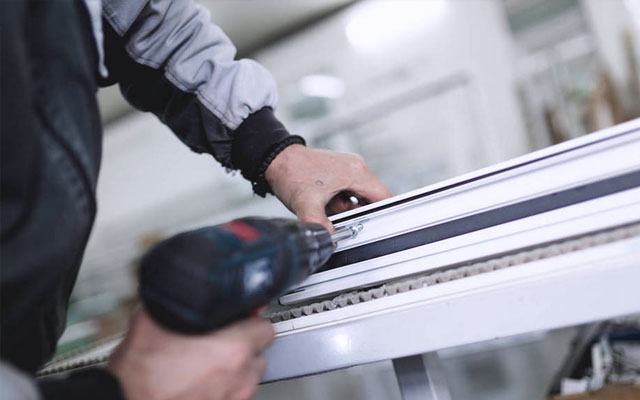What Kind of Screws to Use for Concrete?
2024-09-19
When it comes to fastening materials to concrete, not all screws are created equal. Unlike wood or drywall, concrete is a dense and tough material, requiring specialized screws and installation techniques. Whether you're hanging shelves, mounting a bracket, or securing a structure, choosing the right concrete screws is crucial to ensure a secure and lasting hold.

What Are Concrete Screws?
Concrete screws, also known as masonry screws or concrete anchors, are specifically designed to penetrate and hold securely in concrete, brick, or stone. These screws are made from high-strength materials such as hardened steel and are coated with a corrosion-resistant finish, making them suitable for both indoor and outdoor use. The design of concrete screws includes deep, sharp threads that cut into the concrete as they are driven in, allowing for a strong grip in the hard material.
Types of Screws for Concrete
There are a few common types of screws and anchors designed for use with concrete, each suited to different applications and load requirements:
1. Concrete Screws (Tapcon Screws)
- Overview: Tapcon screws are one of the most popular choices for fastening into concrete. They are available in various lengths and diameters to suit different thicknesses of materials.
- Material: Typically made from hardened steel and coated with blue Climaseal or zinc to prevent rusting.
- Uses: Ideal for light- to medium-duty applications such as securing shelves, handrails, or metal brackets to concrete or masonry walls.
- Installation: Requires a pre-drilled hole using a masonry bit to match the size of the screw. Once the hole is drilled, the screw is driven in using a standard screwdriver or impact driver.
2. Sleeve Anchors
- Overview: Sleeve anchors consist of a threaded screw inside a metal sleeve that expands when the screw is tightened, providing a strong hold in concrete.
- Material: Usually made from steel, with a zinc or stainless-steel finish for corrosion resistance.
- Uses: Best for heavier loads like securing large shelving units, heavy machinery, or structural components.
- Installation: After drilling a hole in the concrete, the sleeve anchor is inserted. As the screw is tightened, the sleeve expands and grips the concrete tightly.
3. Wedge Anchors
- Overview: Wedge anchors are heavy-duty fasteners designed for high-load applications. They have a wedge mechanism at the base that expands as the screw is driven in, anchoring it securely in the concrete.
- Material: Often made from stainless steel or galvanized steel for high corrosion resistance.
- Uses: Ideal for securing heavy equipment, structural beams, or safety railings in commercial and industrial settings.
- Installation: A hole is drilled slightly deeper than the length of the wedge anchor. As the anchor is tightened, the wedge at the bottom expands, locking the screw into place.
4. Hammer Drive Anchors
- Overview: These are fast, easy-to-install anchors that do not require nuts or washers. A pin or nail is driven into the anchor, expanding it to secure the screw in place.
- Material: Commonly made of zinc-plated steel or nylon.
- Uses: Suitable for lightweight applications such as securing conduit, electrical boxes, or insulation panels.
- Installation: After drilling the hole, the anchor is inserted, and the nail or pin is hammered into place to expand the anchor and secure it in the concrete.
5. Drop-In Anchors
- Overview: Drop-in anchors are internally threaded anchors that are inserted into a pre-drilled hole. Once in place, a bolt or screw can be fastened into the anchor for a secure hold.
- Material: Usually made from steel or stainless steel.
- Uses: Ideal for medium- to heavy-duty applications such as hanging pipes, lighting fixtures, or support rods from ceilings or walls.
- Installation: The anchor is dropped into the hole, and a setting tool is used to expand it, creating a strong grip in the concrete.
Factors to Consider When Choosing Screws for Concrete
Before purchasing concrete screws or anchors, consider the following factors to ensure the best results for your project:
1. Load Capacity
Determine the weight of the object or material you’re fastening. For light loads, a Tapcon screw or hammer drive anchor may suffice, but for heavier loads, a wedge anchor or sleeve anchor will offer better support.
2. Material of the Object
Consider what material you are attaching to the concrete (e.g., wood, metal, plastic). Some screws are better suited for certain materials, so be sure to choose the right type for your application.
3. Depth of Embedment
Make sure the length of the screw is appropriate for the thickness of the material and the depth of the hole in the concrete. Screws need to be embedded deep enough to provide a secure hold, but not so deep that they cause damage.
4. Corrosion Resistance
For outdoor or damp environments, choose screws with corrosion-resistant coatings like zinc or stainless steel to prevent rusting and ensure long-term durability.
5. Installation Tools
Concrete screws and anchors typically require pre-drilling with a masonry bit. Ensure you have the correct drill and bit size for the job, as well as the proper tools (like a hammer or setting tool) if using expansion anchors.
Tips for Installing Screws in Concrete
1. Drill Pilot Holes: Always pre-drill holes with a masonry drill bit to prevent cracking the concrete and to ensure the screw can be inserted smoothly.
2. Use a Hammer Drill: For tougher concrete surfaces, a hammer drill will make the drilling process much faster and easier.
3. Clean the Hole: After drilling, use compressed air or a brush to clean out any debris from the hole. This helps the screw or anchor seat properly.
4. Don’t Overtighten: Be careful not to overtighten the screws, as this can strip the threads or crack the concrete.
Choosing the right screws for concrete is essential for ensuring a secure, durable connection. Whether you're hanging lightweight fixtures or securing heavy structural elements, understanding the types of concrete screws and how to install them properly will help your project succeed. Be sure to consider factors like load capacity, environment, and installation tools when selecting the best option for your job. With the right screws and techniques, you can achieve a strong, reliable hold in concrete for any project.
JiaXing Runyee Metal Technology Co., Ltd. is a professional manufacturer and trade combo enterprise located in the fasteners base Haiyan County, Zhejiang, China. We specialized in various of fasteners since 2013. Our wide range of fasteners includes Drywall Screw, Chipboard Screw, Self-drilling Screw, Wood Construction Screw, Concrete Screw, Washers etc. Visit https://www.runyee-fasteners.com to discover our latest products. If you need assistance, you can get in touch with us at [email protected].



























